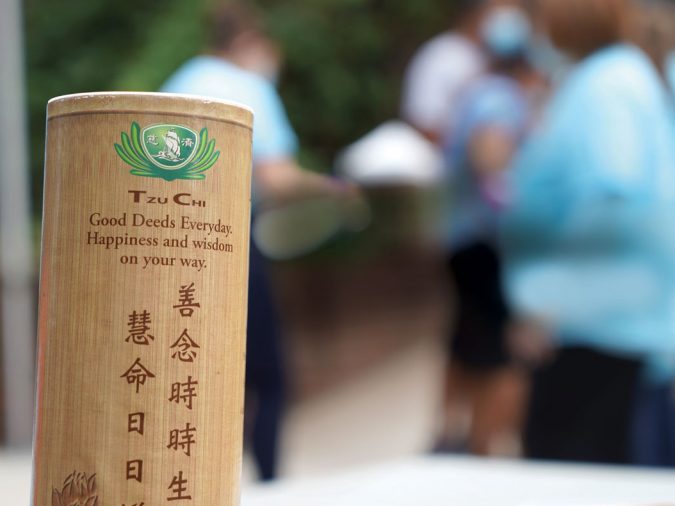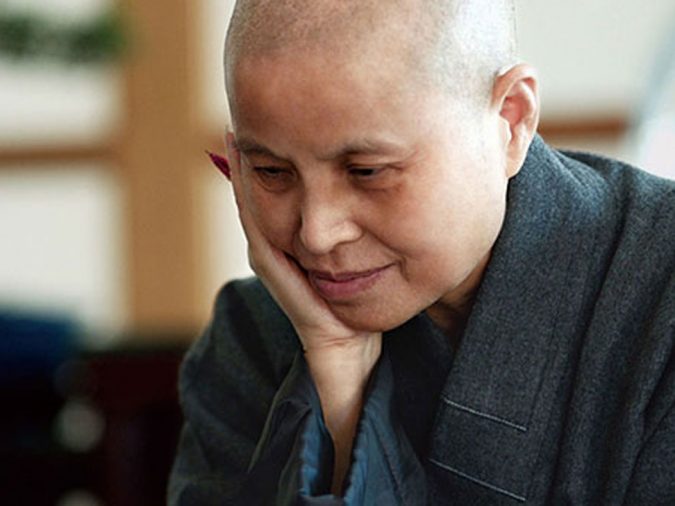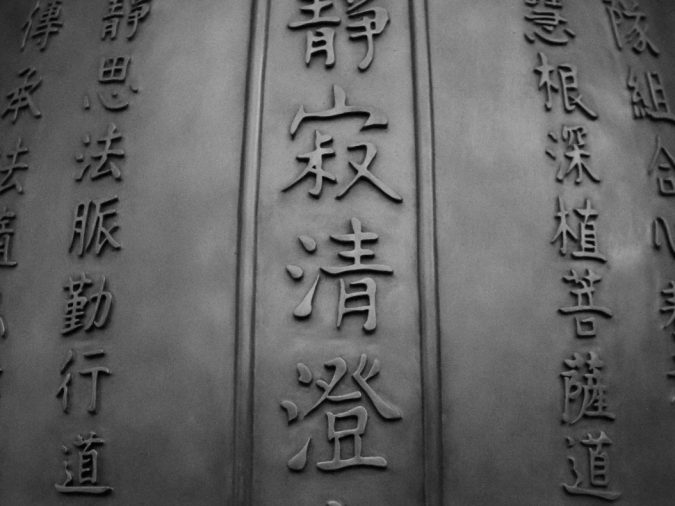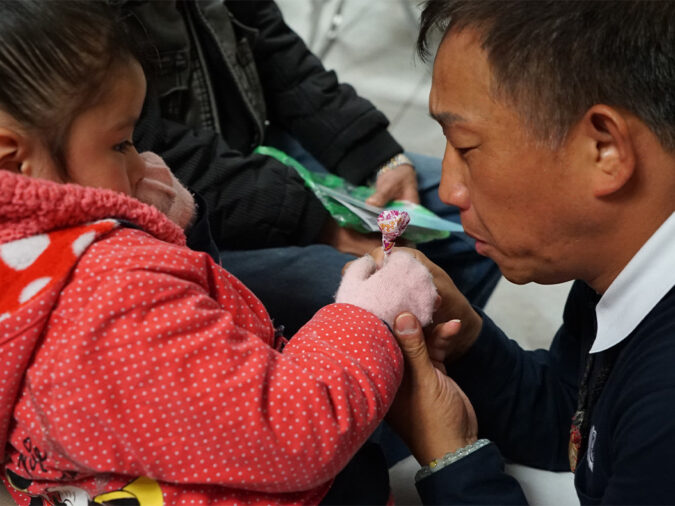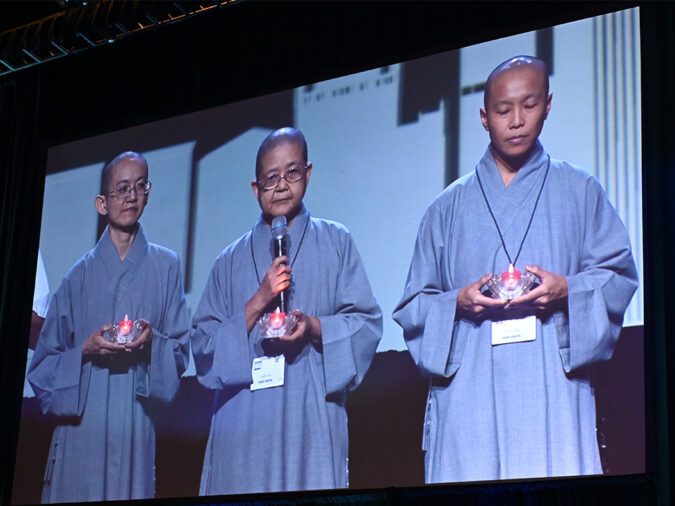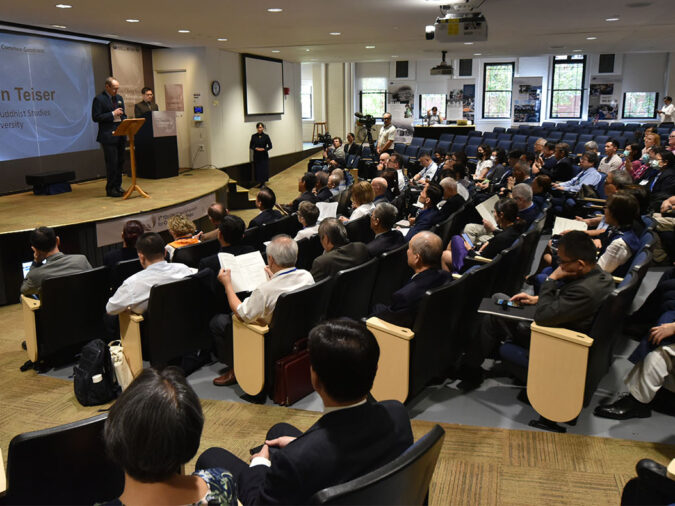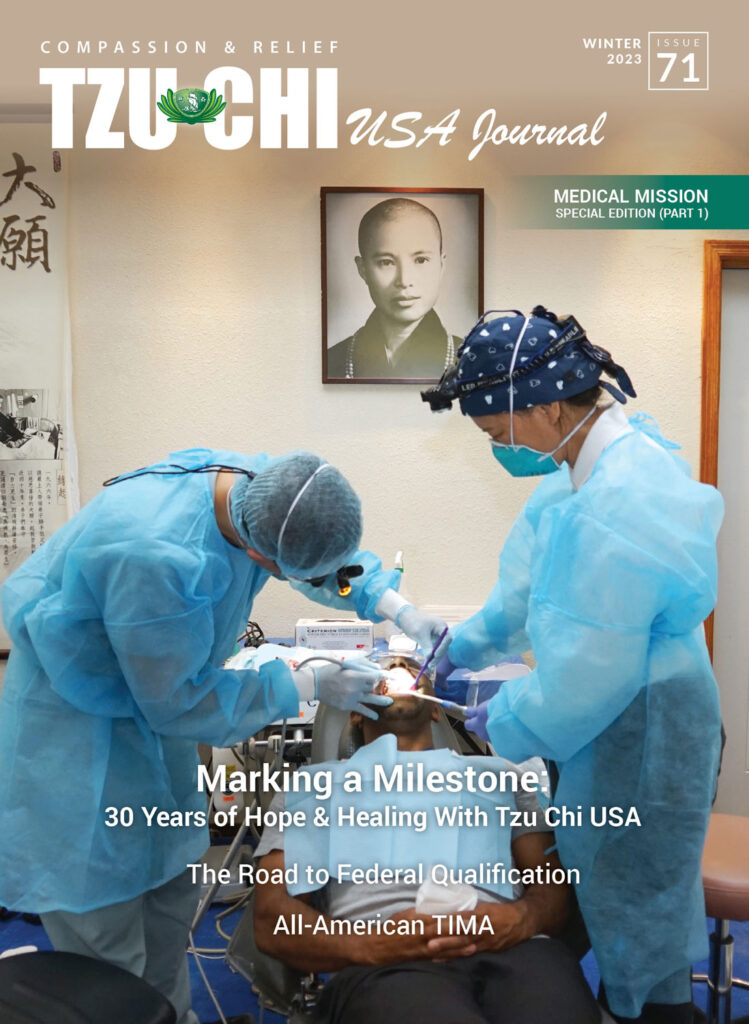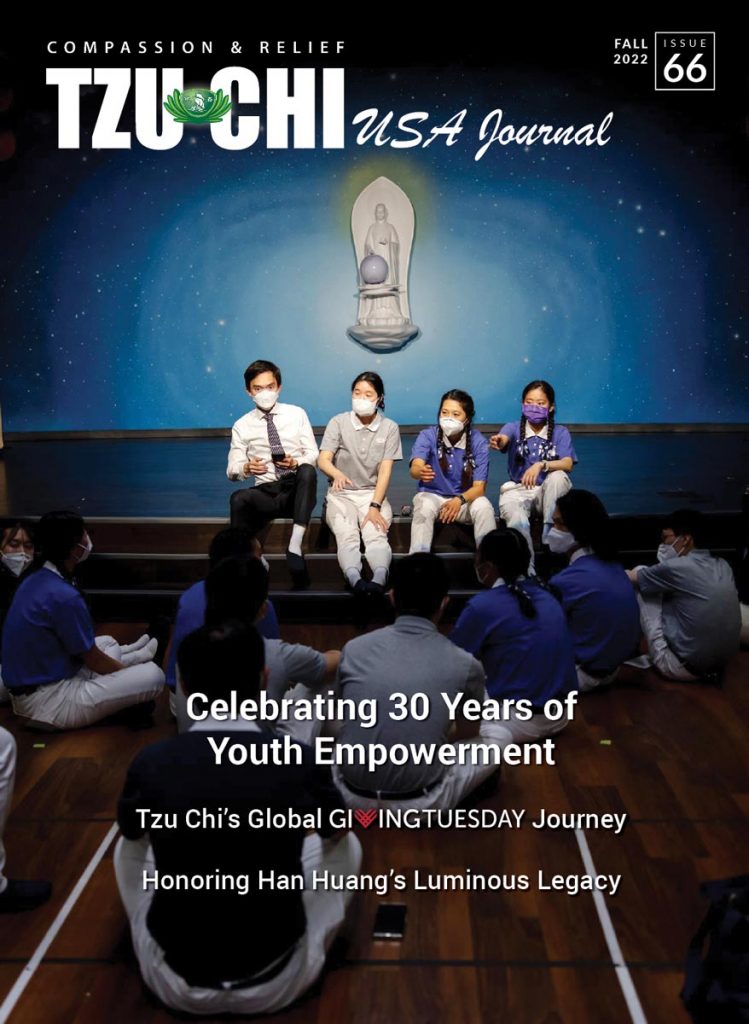DHARMA STORIES
The Kulapati’s Wish
Translated by the Dharma as Water Team
Published #60 | Spring 2021 Issue

SHARE
As spiritual practitioners, we must treat everyone impartially, so that we can feel happy no matter who we meet. When we look at people with the heart of a buddha, everyone is a buddha.
Dharma Master Cheng Yen
I often say, “Faith is the source of the path and the mother of merits. It nurtures all roots of goodness.” All of our merits and virtues arise from faith. If we have the right faith, we can constantly grow in wisdom, and if our faith is pure, right Dharma and right mindfulness will always remain in our minds. A mind that is not distracted or afflicted is a pure mind, and if our minds are pure, we will not be attached to external phenomena.
There is a classic story from a Buddhist sutra. There was once a Kulapati, a clan chief, who had faith in the Three Treasures, the Buddha, the Dharma, and the Sangha, and had the utmost respect for them. Every time he visited a monastery, he most enjoyed prostrating respectfully to the golden image of Manjusri Bodhisattva, which was luxuriously adorned with all kinds of treasures. In his hand, the statue held the sword of wisdom, to sever afflictions. This image of Manjusri Bodhisattva was truly majestic.
After some time visiting this monastery to see the image, the Kulapati made a wish. “Manjusri Bodhisattva, I admire your wisdom and your image. If I had wisdom like yours, I could delve into the Buddha Dharma, which is as boundless as a great ocean. I keep hoping that you, Manjusri Bodhisattva, will manifest a physical form so that I can see you in person. I vow to make offerings to one thousand monastics, and I hope you will be among them so that I can see your physical form.” After he went home, the Kulapati reverently made lengthy preparations. At last, the Dharma assembly for making offerings to one thousand monastics began.
At this most reverent and grand occasion, the Kulapati set out an extravagant chair. Then the monastics came one after another. As this was happening, the Kulapati saw a man who looked ragged. The man was disheveled, ugly, and dirty, and he arrived hobbling and limping on a cane. He ignored the many empty seats and strutted and limped to sit in the extravagant and elevated chair.
The Kulapati said to him, “Please come down; I placed this chair here for someone else to sit in.” The man refused, so the Kulapati yanked him off the chair. Then, the Kulapati went back to waiting by the door, hoping that Manjusri Bodhisattva would come. When the Kulapati turned around, he saw that the disheveled man was back on the chair. Again, the Kulapati tried to coax him to come down, but he refused, so he pulled him down again. This happened again and again. After seven times, the Kulapati, displeased, said, “Today I was waiting happily and reverently to welcome the person I admire most. Why do you keep sitting on this chair?” Then, he pulled the man off again.
The Kulapati’s mood was very downcast. After the Dharma assembly ended, he returned to the temple and went before Manjusri Bodhisattva’s image again. He bowed and prostrated, then he described the wish that was in his heart. Despite his disappointment, he did this very respectfully. After that, he went home.
That night in his sleep, the Kulapati had a dream. He dreamt of the magnificent Manjusri Bodhisattva, adorned with jewels and extravagant clothing, walking toward him. At the sight of Manjusri Bodhisattva, he quickly prostrated respectfully. Manjusri Bodhisattva said to him, “Weren’t you looking forward to seeing me in person?” “Yes,” the Kulapati answered. “But I never got to see you.” Manjusri Bodhisattva replied, “I was there. I sat on the chair seven times, and you pulled me down all seven times.” The Kulapati then woke up, startled.
The Kulapati felt very upset. He thought to himself, “When Buddhas and Bodhisattvas manifest in this world, their appearance is not fixed. I have often heard this principle, so why couldn’t I apply it in my daily life? I also know the Buddha’s teachings of impartiality and showing compassion to all. When we are compassionate, we must be giving, and in that giving, we must be impartial. So, why did I discriminate based on appearance?” He felt deeply repentant. After he woke up, he went to the temple at dawn and prostrated before Manjusri Bodhisattva again and repented.
The Kulapati realized that Manjusri Bodhisattva applied his wisdom to transform sentient beings and was teaching him to have a pure mind that is not attached to appearances. In studying the Dharma, we must understand how to have faith without discursive thoughts. This means no longer holding deluded beliefs, afflictions, or expectations. It is only with this mindset that we will be able to wholeheartedly focus without distractions and move forward on the Bodhisattva Path.









